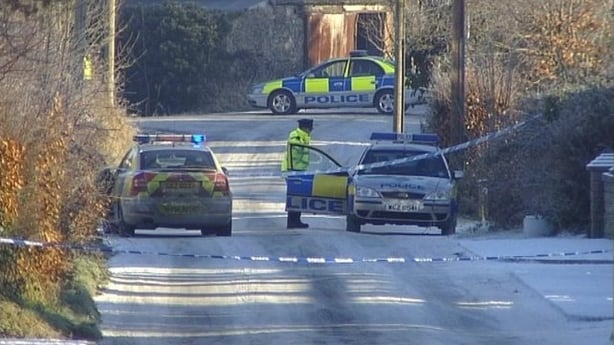Four police officers who work for the PSNI's intelligence unit are to be disciplined for failing to pass on information to detectives investigating the attempted murder of another officer nearly six years ago.
However the Northern Ireland Police Ombudsman said there is insufficient evidence to support a claim that police had a piece of information which could have prevented the attack.
Constable Peadar Heffron was seriously injured after a bomb exploded under his car in Randalstown Co Antrim in January 2010.

Even though there was insufficient evidence to support an allegation that the attack could have been prevented, Police Ombudsman Dr Michael Maguire said there was a failure to help detectives investigating the blast.
Four officers, two detective superintendents and two detective sergeants, from the PSNI's C3 unit should be disciplined, the Ombudsman said.
"I acknowledge that the information the detectives sought did not lead to significant new evidence," Dr Maguire said.
"Despite this, the delay in waiting to asses this information lost momentum for the investigation.
"Police policy requires that investigators are provided with intelligence at the earliest opportunity.
"They are the people best placed to develop lines of inquiry that may translate into evidence, which could otherwise be lost by delay.
"This case demonstrates clear shortcoming in this regard."
Constable Heffron, lost a leg as a result of the dissident republican explosion and now uses a wheelchair.
He had been on his way to work at Woodbourne police station in west Belfast when the bomb exploded about a mile from his home on Milltown Road in Randalstown on 8 January 2010.
The Ombudsman's investigation was launched after a complaint from a man who claimed police had been warned of the likelihood of an attack at "Milltown" several weeks earlier.
Investigators spoke with the informant, who said he had receive a text message about the impending attack and passed it to police.
He did not save the texts and did not have any other notes or records from the time, it was noted.
But, to the best of his memory, the informant claimed his message read: "Attack on police officers- Milltown - urgent," the Ombudsman's office revealed.
Although he believed the "Milltown" mentioned in the original text was in west Belfast, he did not specify this to police.
The informant alleged that following the attack on Constable Heffron, police revealed to him they had "missed out on Randalstown" when checking areas known as Milltown.
But the Police Ombudsman investigators also spoke to the police officer responsible for handling the intelligence.
He said he had recorded the content of the text verbatim before deleting it.
The officer said the text specified Milltown in Andersonstown, west Belfast, and that he had issued a warning to all police in the area.
He rejected claims police had said they "missed out on Randalstown".
Instead, the officer claimed it was the informant who had made contact to apologise for incorrectly interpreting "Milltown" as the area in west Belfast.
Having considered other documentation the Ombudsman concluded that on the balance of probabilities, police were told the impending attack was to be in Belfast, not Randalstown.
But during the course of their investigation, Ombudsman staff became concerned that detectives were not getting the help they needed from PSNI's C3 branch which has primary responsibility for receiving and managing intelligence.
A number of senior police officers within the unit, including several superintendents were interviewed.
Two officers said they had supplied information to the detectives within weeks of the attack while another said he believed information had been provided.
Dr Maguire said C3 has been unable to provide any documentation or other evidence to confirm that detectives received the information they had been requesting.
He concluded that a delay of more than two years in providing detectives with information, and to then make it available a matter of weeks after hearing of his involvement, was not acceptable.

